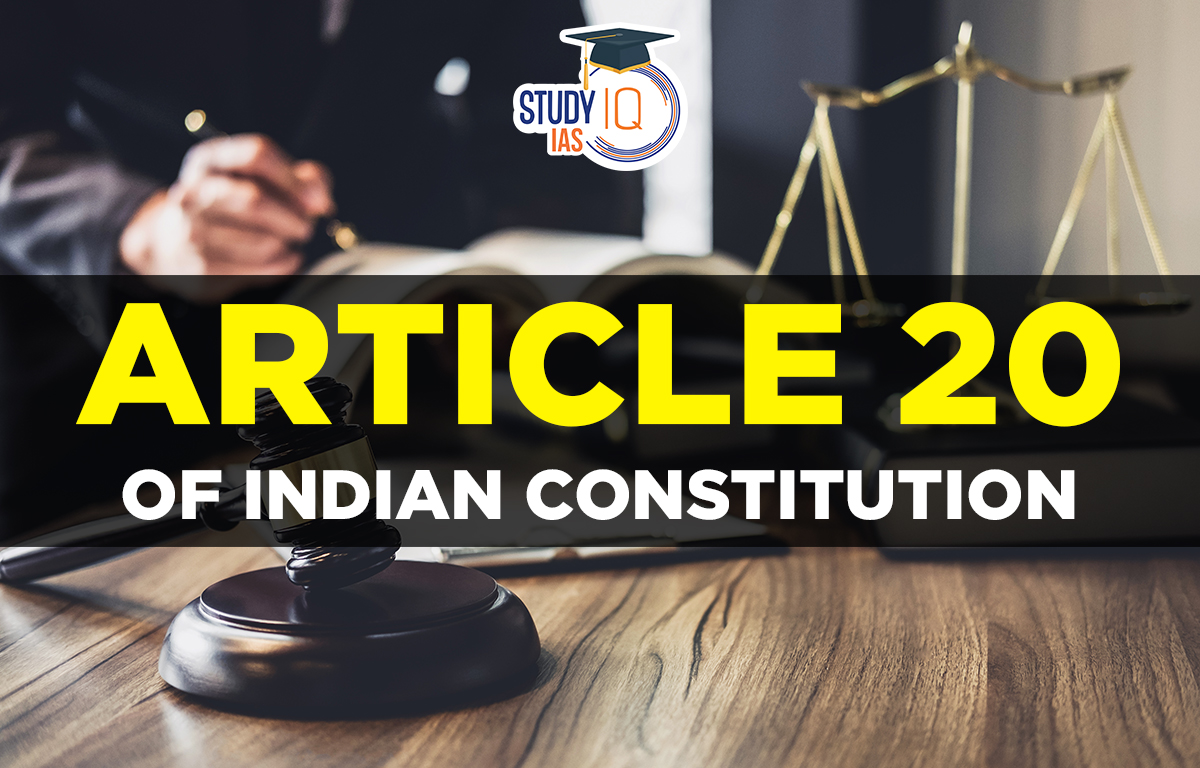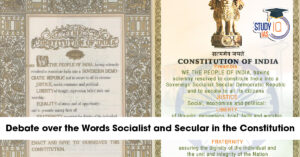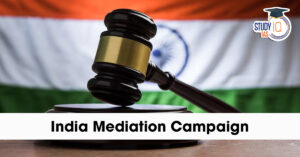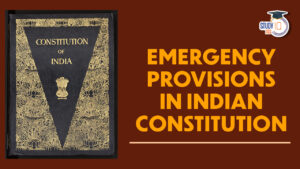Table of Contents
Article 20 of Indian Constitution
Article 20 of the Indian Constitution safeguards individuals from unjust convictions. It ensures that no one can be found guilty of an act that wasn’t illegal at the time, cannot receive a punishment exceeding what the law allowed then, and cannot be forced to testify against themselves or be tried twice for the same offense. This protection applies to everyone, including citizens, foreigners, and companies, and remains effective even during emergencies. As a result, it serves as a pillar of the Indian Constitution. All people, including both Indians and foreigners, are eligible for the protections provided by Article 20 of Indian Constitution.
Article 20 of the Indian Constitution offers these protections for individuals accused of crimes:
- Ex Post Facto Law: Clause (1) prevents retroactive laws that punish actions that were not illegal when they were committed.
- Double Jeopardy: Clause (2) protects against being tried twice for the same offense.
- Prohibition Against Self-Incrimination: Clause (3) ensures that a person cannot be forced to testify against themselves.
Read More: Right to Freedom
Article 20 of Indian Constitution Provisions
Three clauses make up Article 20 of the Indian Constitution. These three clauses address the problem of needless and undesirable activities by the legislature, executive, and implementing bodies.
Read More: Article 19 of Indian Constitution
Article 20(1) of Indian Constitution
No one may be found guilty of an offence unless they violated a law that was in effect when the offence was committed, and they cannot receive a punishment that is greater than what was allowed by the law that was in effect at the time the offence was committed.
6 Fundamental Rights of Indian Constitution
Ex-post-facto Law
Article 20(1) limits the power of lawmakers by stating that they cannot create retroactive criminal laws. This means that they can’t punish someone for a crime that was not illegal at the time it was committed. However, they can create laws that impose civil penalties or taxes retroactively, meaning those laws can apply to past actions.
The protection under Article 20(1) only applies to criminal convictions and sentences. It does not protect against civil trials or tax laws. Additionally, this protection does not apply to situations like preventive detention or demands for security; it only prevents harsher penalties for crimes that were committed in the past.
Scope of Retrospective Laws
Both prospective and retroactive laws may be made by the legislature, however, retroactive laws cannot be made in criminal cases. As a result, this restriction only applies to criminal laws and not to civil or tax laws. In other words, a tax or civil liability may be imposed in the past.
Prohibition: Only the conviction or punishment under an ex-post facto criminal law is prohibited by this clause; the trial itself is not.
Preventive Detention: The immunity under this provision cannot be claimed in case of preventive detention or demanding security from a person.
Relevant Supreme Court Judgement: In Ratanlal Vs State of Punjab, 1964 case, Supreme Court opined that, if retrospective law gives benefit to the accused, then it is applicable.
Nirbhaya Case: After the gruesome gang-rape incident in Delhi, public sentiment favoured harsher punishment for all the six accused in the Nirbhaya gang-rape case. But since one of them was a minor, any revision in the juvenile age would not help the case, as such amendment shall not apply with retrospective effect.
Read about: Article 14 of Indian Constitution
Article 20(2) of Indian Constitution
Clause (2) of Article 20 of the Indian Constitution comprises the right against Double Jeopardy.
No Double Jeopardy
This protection applies only in court or judicial proceedings. It follows the principle that no one should be tried twice for the same crime, known as nemo debet vis vexari.
However, this protection does not extend to departmental or administrative cases because they are not considered judicial. Compared to American and British laws, the protection in Article 20(2) is narrower. In those countries, the double jeopardy rule applies even if a person was acquitted in the first trial. In India, protection only applies if a person has been both prosecuted and punished in the first trial before facing a second trial for the same offense.
For the double jeopardy rule to apply in India, these conditions must be met:
- The person must be accused of a crime.
- The case must have been heard in a court or judicial tribunal.
- The person must have been prosecuted and punished in the earlier case.
- The crime must be the same as in the previous case.
Read about: Article 15 of Indian Constitution
Article 20(3) of Indian Constitution
Clause (3) of Article 20 of the Indian Constitution comprises the right against self-incrimination.
No self-incrimination
Clause (3) of Article 20 states that no one accused of a crime can be forced to testify against themselves, whether through spoken or written evidence. However, this protection doesn’t cover:
- Being forced to produce physical evidence
- Giving thumbprints, signatures, or blood samples
- Having their body examined
This right applies only in criminal cases, not in civil cases, and is specifically for those accused of an offense. In contrast, in the U.S. and British law, this protection also extends to witnesses.
The term “accused of an offense” means this right is only for those formally accused. If someone is not accused, they can not claim this protection.
The protection against self-incrimination covers both courtroom testimony and any forced production of documents that could harm the accused. If someone chooses to give evidence voluntarily, it can be used against them since a request isn’t considered coercion. Coercion includes threats or harm to the accused or their family, while voluntary confessions without threats are not protected.
Regarding investigative techniques, methods like polygraph tests, narcoanalysis, and brain mapping have been used to extract information. A polygraph measures physiological responses during questioning, while narcoanalysis involves using drugs to induce a state where a person might reveal true information. Brain mapping assesses brain activity during interrogation.
In the case of Selvi vs. State of Karnataka (2010), the Supreme Court ruled that these methods are forms of compulsion and violate the right against self-incrimination and the right to life and liberty.
Read More: Article 16 of Indian Constitution
Article 20 of Indian Constitution UPSC
The intriguing finding is that Articles 20(1), 20(2), and 20(3) of the Indian Constitution protect guilty people from disproportionate legislative, judicial, and executive measures, respectively, would emerge if we bothered to analyse every clause in that article. The cornerstone of the Indian Constitution, these protections are applicable to both Indians and foreigners and guarantee basic human rights to anyone who has been convicted of or is under suspicion for a crime.
Read More: Right to Equality


 Indian Secularism: Constitutional Provis...
Indian Secularism: Constitutional Provis...
 India Mediation Campaign, Objectives, Pr...
India Mediation Campaign, Objectives, Pr...
 Emergency Provisions in Indian Constitut...
Emergency Provisions in Indian Constitut...





















